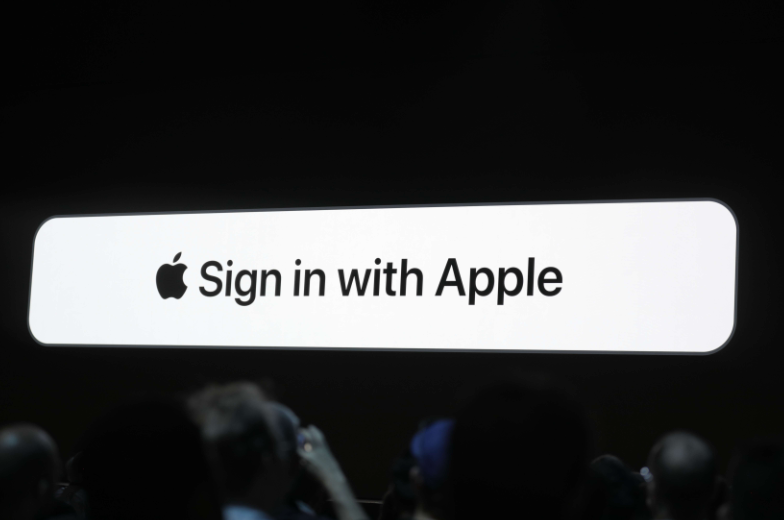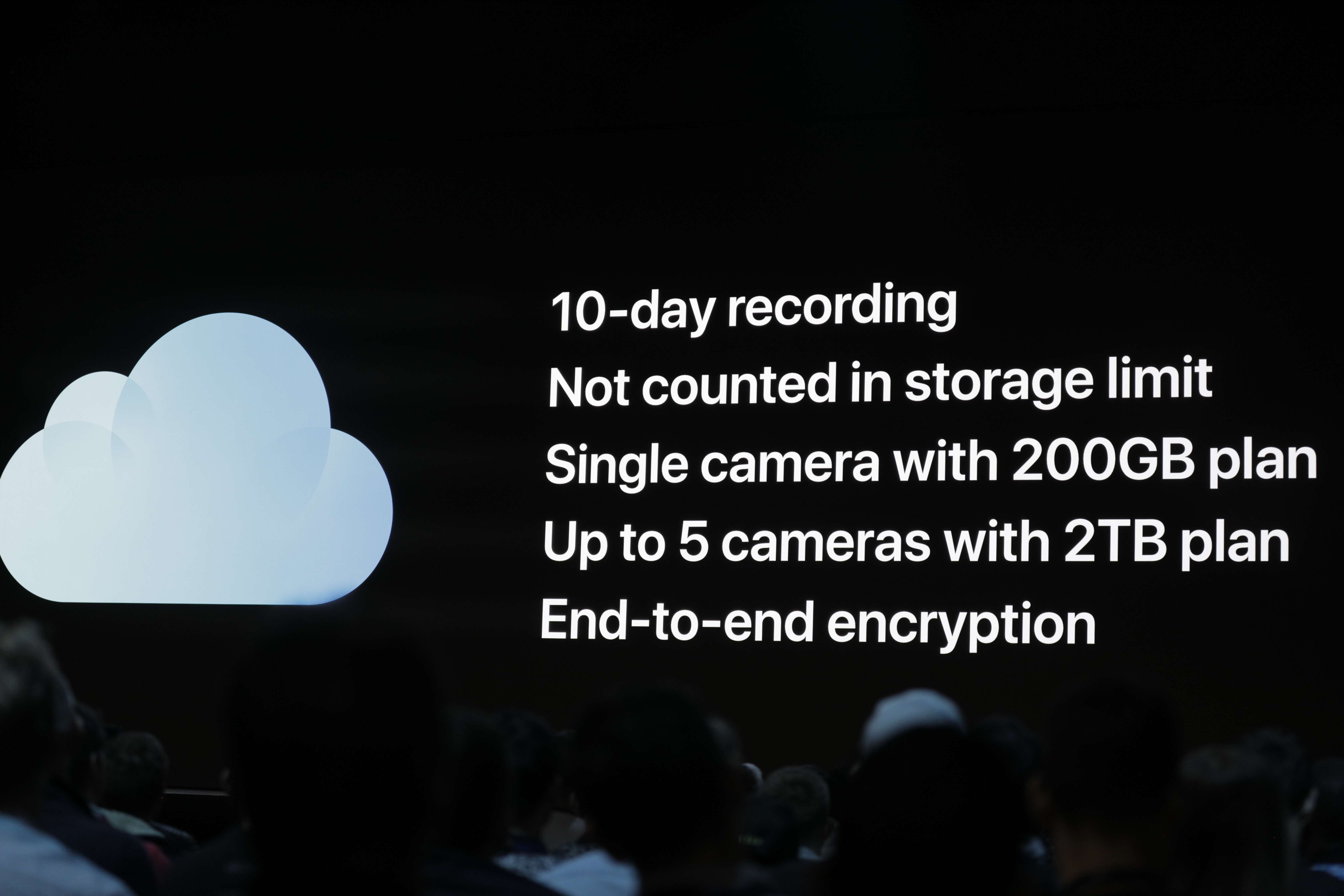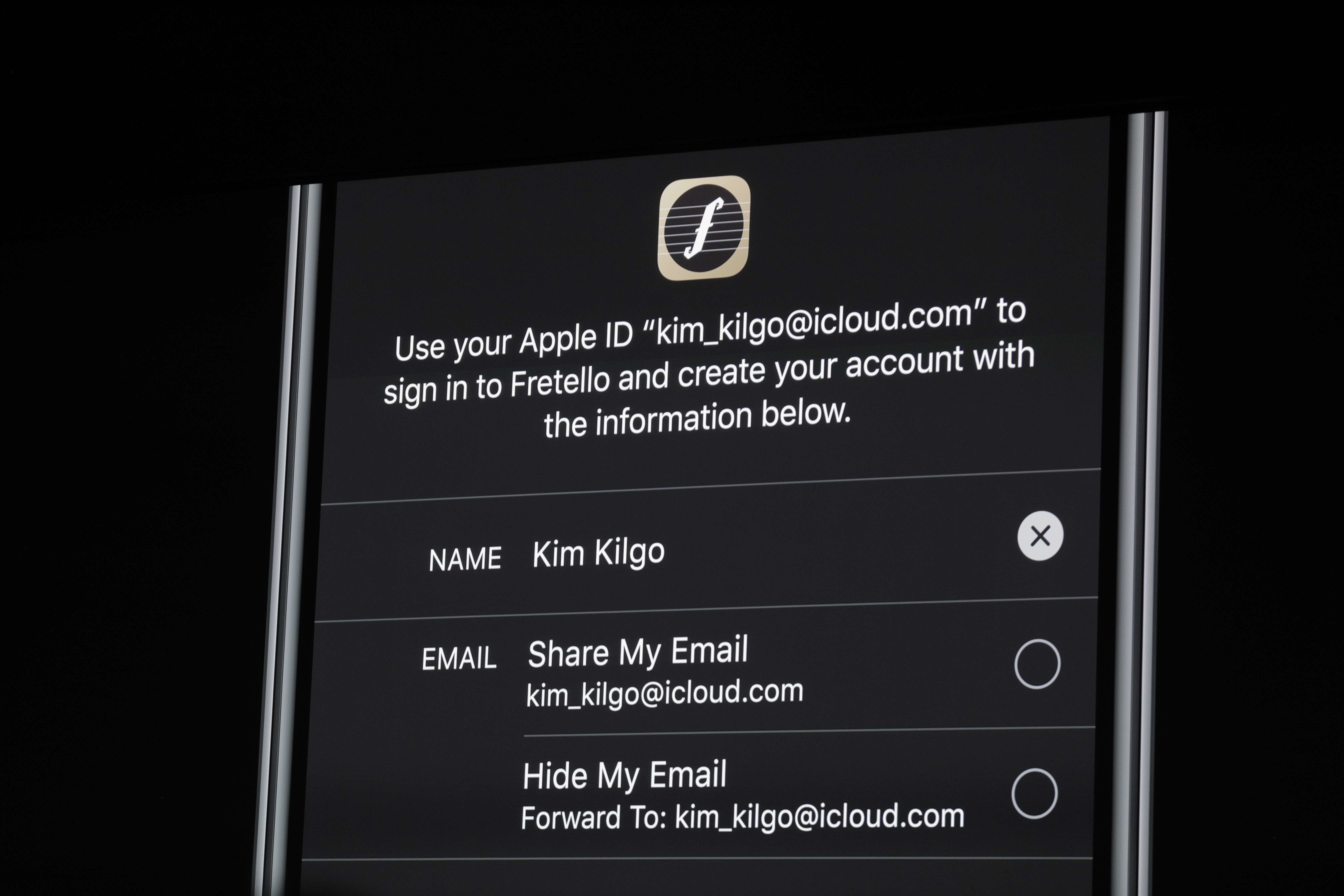Apple shared plenty of news today at its WWDC 2019 annual developer conference, but a few of the announcements early on are potentially its biggest in terms of what they signal about the company and its direction. Specifically, Apple unveiled a new single-sign on unified ID platform, as well as a new way it’ll operate as a go-between for security cameras that work with its HomeKit smart home services.
These didn’t come out of nowhere: Apple has been playing up its privacy game for at least a few years now, and in the Tim Cook era it’s especially come to the fore. But today’s announcements really crystallize how Apple’s approach to privacy will mesh with its transformation into becoming even more of a services company. It’s becoming a services company with a key differentiator – privacy – and it’s also extending that paradigm to third-parties, acting as an ecosystem layer that mediates between users, and anyone who would seek to monetize their info in aggregate.
Apple’s truly transforming into a privacy-as-a-service company, which shows in the way that it’s implementing both the new single sign-on account service, as well as its camera and location services updates in iOS 13. The SSO play is especially clever, because it includes a mechanism that will allow developers to still have the relevant info they need to maintain a direct relationship with their users – provided users willingly sign-up to have that relationship, but opting in to either or both name and email sharing.

The radial decision-making that also includes an option to create a tokenized single-use email for a direct, but unique relationship is especially inspired. It means a developer or service provider can still easily talk to you directly, but also means that they can’t then trade that on for profit by selling or sharing your information with other developers and providers. It’s entirely about moving the locus of control for privacy to the user, rather than playing the classic charade of providing “control” to users in the form of long, obscure and hard to reject terms of services with onerous requirements for the user re: their data sharing by the service provider.

Apple’s work with camera providers is also unique – providing actual on-device analysis of footage captured by third-party partners to deliver things that security device makers have typically offered as a value-add service themselves. That includes apparent identification of visitors to your home, for instance, and sending alerts when it detects people, as well as being able to differentiate that from other kinds of motion.
That’s going above and beyond simply protecting your data: It’s replacing a potential privacy-risk feature with a privacy-minded one, at a service level across an entire category of devices.

The new location services feature similarly puts all the control with users, instead of with service providers. Making it possible to provide single-use location permissions to apps is terrific for privacy-minded users, as are updates about usage, which sound like they could be detailed about what specific apps are doing with that data in Apple’s estimation.
Other new features, including HomeKit firewalling of specific services and devices, are similar in tone, and likely indicate what Apple intends to do more of in the future. Combined with its existing efforts, this begins to paint a picture of where Apple plans to play in offering a comprehensive consumer services product that is substantially differentiated from similar offerings by Google and others.
It’s a bold play, and one that could end with Apple accruing a huge amount of control over consumer relationships with not only hardware, but also anything else that software providers want to do on their platform. Given Apple’s track record with privacy to date, that’s reassuring, but we should definitely watch closely to see how their business evolves if they succeed in shifting that locus of control.